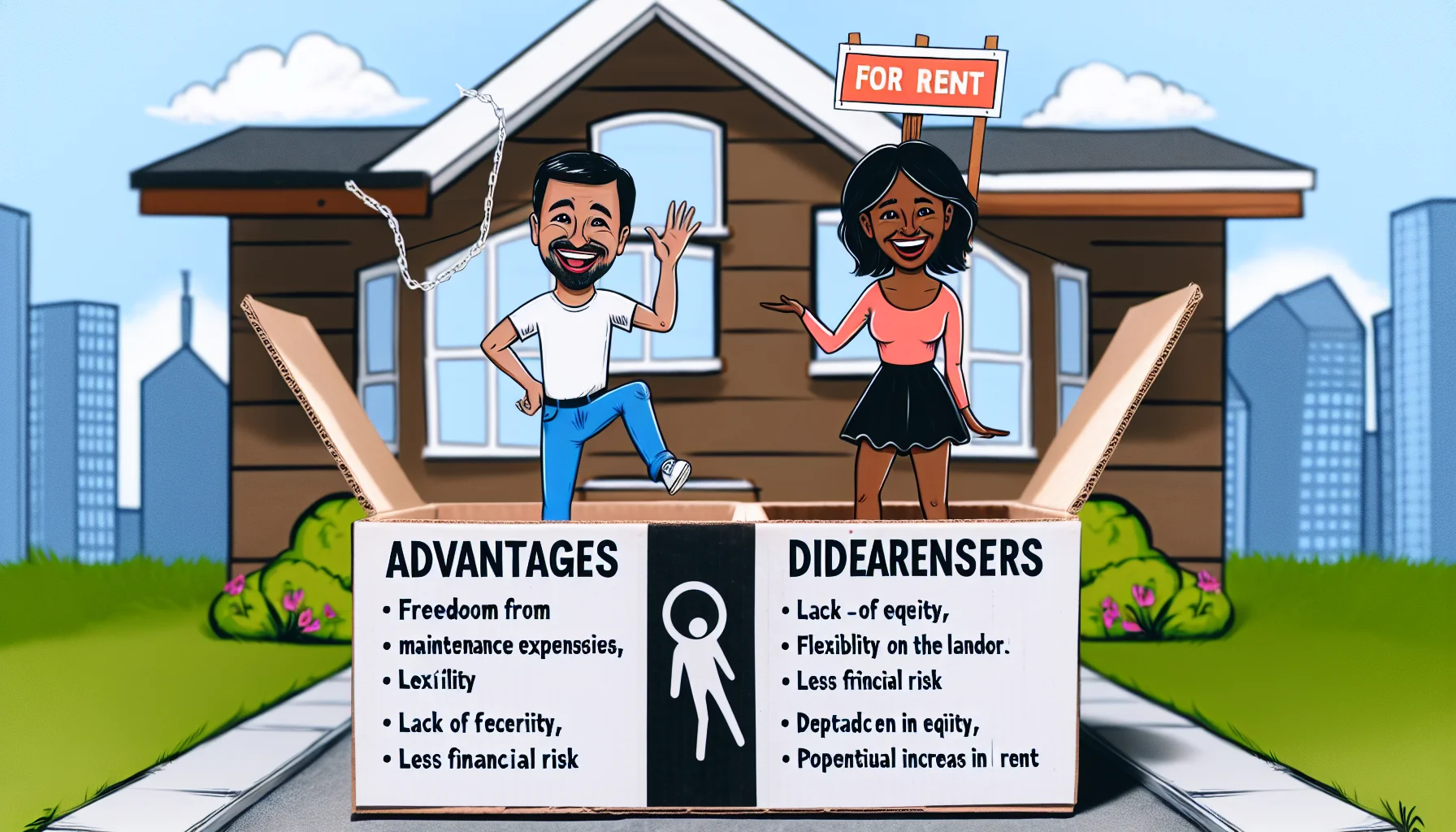Pros and cons of renting a home Quiz
Test Your Knowledge
Question of
Understanding Renting a Home
Definition and Basics of Renting
What is Renting?
Renting involves a contractual agreement where a tenant pays the property owner, often referred to as the landlord, for the use of a property for a specified period of time. Unlike homeownership, renting does not confer ownership rights to the tenant, but it does grant them the right to use and live in the property as outlined in their lease agreement.
Key Terms in Rental Agreements
Rental agreements include several key terms such as lease duration, monthly rent, security deposit, pet policies, maintenance responsibilities, and conditions for termination of the lease. Understanding these terms is crucial for both landlords and tenants to ensure a clear and enforceable agreement.
The Rental Process
Searching for a Rental Property
Finding the right rental property involves considering location, budget, size, and amenities. Potential renters often use online listings, real estate agents, and personal networks to discover available properties.
Application and Approval
Once a suitable property is found, the next step is to fill out a rental application, which may require a fee. This application allows the landlord to conduct background and credit checks. Approval is based on these checks, along with references and proof of income, to ensure the tenant can fulfill the lease terms.
Types of Rental Properties
Apartments and Condos
Apartments and condos are popular rental options, especially in urban areas. These properties can range from studio apartments to larger multi-bedroom units and often include amenities like maintenance services, security, and community facilities.
Single-Family Homes
Single-family homes provide more space and privacy, making them ideal for families or those seeking a quieter living environment. These rentals usually come with higher rent and additional responsibilities for the tenant, such as lawn maintenance.
Financial Implications of Renting
Initial Costs of Renting
- Security Deposits
- First and Last Month's Rent
Monthly Expenses
- Rent Payments
- Utility Costs and Other Fees
Long-Term Financial Considerations
- Rent Increases
- Absence of Equity Building
Pros of Renting a Home
-
Flexibility and Mobility
- Easier Relocation
- Short-Term Commitment Options
-
Reduced Maintenance Responsibilities
- Landlord Handles Repairs
- No Need for Home Improvement
-
Amenities and Convenience
- Access to Facilities
- Services Included in Rent
Cons of Renting a Home
-
Lack of Ownership Benefits
- No Equity Accumulation
- Restrictions on Customization
-
Potential for Unstable Living Situations
- Lease Terminations and Renewals
- Dependence on Landlord Policies
-
Renting vs. Buying Cost Analysis
- Long-Term Rental Costs
- Opportunity Costs of Not Investing
Legal Aspects of Renting
Understanding Your Lease Agreement
Lease Terms and Conditions
It's crucial to thoroughly understand the terms and conditions outlined in your lease agreement. This document specifies your rental period, payment obligations, and any restrictions or allowances within the property.
Tenant Rights and Obligations
Tenants have rights protected under law, including the right to a habitable living environment and the right to privacy. Obligations typically include timely rent payments and keeping the property in good condition.
Dealing with Landlord Disputes
Communication with Landlords
Effective and open communication is often the first step in resolving disputes with landlords. It's important to document all communications for future reference.
Legal Recourse for Tenants
If disputes cannot be resolved through communication, tenants may have legal recourse through local tenant-landlord laws or small claims court.
Tenant's Insurance and Liability
Importance of Renter's Insurance
Renter's insurance provides financial protection against loss or damage to personal property and liability in case someone is injured on the property.
Coverage and Policy Options
Insurance policies vary, so it's important to understand what is covered under your policy, including any deductibles and limits on coverage.
Preparing to Rent a Home
Evaluating Your Housing Needs
- Size and Space Requirements
- Location and Accessibility
Budgeting for Rental Expenses
- Calculating Affordable Rent
- Planning for Additional Costs
Searching for the Right Rental Property
- Online Listings and Resources
- Working with a Real Estate Agent
Maximizing Your Rental Experience
Creating a Comfortable Living Space
Personalizing Your Rental
Transform your rental into a home by adding personal touches. Use removable wallpaper, hang art, and incorporate your favorite colors through textiles and decor. Remember, small changes can make a big difference in making your space feel uniquely yours.
Organizing for Functionality
Maximize your living space by organizing efficiently. Use furniture that doubles as storage, invest in wall shelves, and declutter regularly. A well-organized home not only looks good but also enhances your daily living experience.
Building a Positive Relationship with Your Landlord
Effective Communication
Keep open lines of communication with your landlord. Whether it’s a maintenance request or a lease question, addressing issues promptly and respectfully can lead to a more positive renting experience.
Understanding Landlord Expectations
Know your lease agreement inside and out. Understanding your landlord’s expectations regarding rent payments, property care, and rules will help you avoid any potential conflicts.
Planning for the Future
Saving While Renting
Even as a renter, it’s important to save money for your future. Create a budget that includes savings for emergencies, a down payment on a house, or other long-term financial goals.
Considering Future Housing Options
While enjoying your current rental, also think about your next steps. Whether it’s renting a larger place or buying a home, planning ahead can help you make a smooth transition when the time comes.












